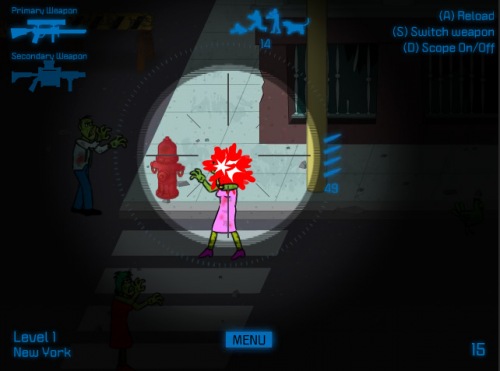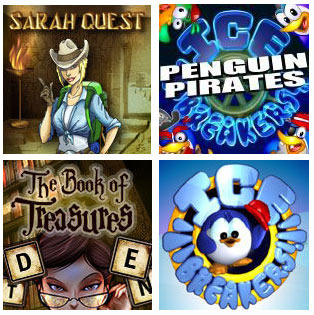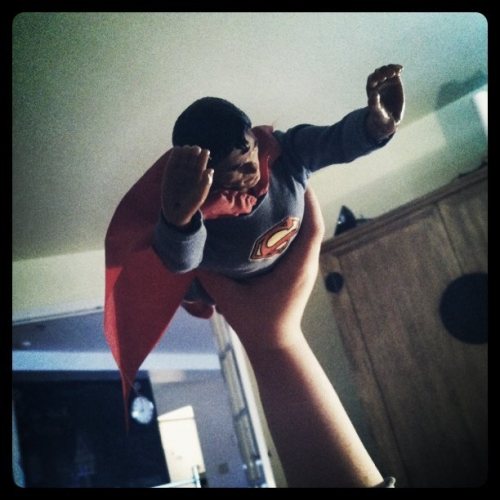by benjaz | Nov 23, 2010 | Games |
 This was a tough one to push out.
This was a tough one to push out.
Zombie Roadtrip was the result of game design by committee at its worst. There were too many cooks in the kitchen here and the roast came out burned — but kinda tasty anyway! I like playing ZR a lot and believe that the scope’s feel, with the zoom-out, is an exceptional touch. I also like the easy weapon switching, and the “Protect the Puppy” levels, of course.
Unfortunately for everyone it took too long to make. About 9 months. There’s lots of blame to go around for that, but the fundamental issue here is that Games.com has never made a game like ZR before. When you cater to a demo of 35-50 year old women there aren’t a lot of zombies wandering around. Once we understood what could make the game work we had already pissed the dev off to no end, and that’s a shame.
Zombie Roadtrip isn’t doing very well on the site. We expected that. But I know it will do well when we syndicate it.
Give it a whirl — and while you do, know that every single pixel was a struggle!Oh yeah, and pass it on to your teenage nephew…
by benjaz | Oct 10, 2010 | Games |
I co-produced one with my boss, Greg Mills — Games.com Jigsaw Puzzles, developed by the talented Batovi team. It’s a standard jigsaw game with a plethora of features. So many, in fact, that we give Greg a hard time. Let’s just say he likes to give gamers options…
Our game Broke is still in beta, but it’s solid. The game is a little slow to start for some, but give the Pro difficulty a try. It’s a must for old Breakout fans. Plus it has a little social commentary thrown in, thanks to the original design spec by John Benyamine. Check it out to see what I mean. The devs, QB9, did a great job on the art and design. It was a tough game to make but they pulled it off.
by benjaz | Sep 19, 2010 | Games |
Alex St. John is at it again.
For over a decade now I’ve watched him grow as a businessman and continue to effectively elicit responses with smacks across the collective face of anyone who cares about the game biz. Much needed, of course, since Games enjoys some of the most brilliant people alive and some of the most tunnel-visioned, not-in-my-house curmudgeons. Sometimes those traits can be found in the same person.
Summed up, St. John believes that social gaming is a mess.
While I completely agree that there’s a lot of unfounded hype in the whole social game market, I disagree on one fundamental point he makes. He seems to be arguing that the old school market works better and is where things will end up again when the almighty dollar dictates the ending.
Half true. Money will write the ending to today’s fading social games market. And that ending will be the emergence of social gaming as the biggest money-maker in games.
Huh?
Well, the fact is the games market has fundamentally changed. Folks who never played games before now implicitly expect to play with their friends in a passive, non/pseudo-competitive way. They want those social hooks that only linked communities can provide. Who’s best positioned to offer that kind of game?
Facebook.
So once FB gets into the games business, they will be the game to beat. And guess who’s best positioned to be #2? Yahoo, AOL, Google and MS. Why? Because they have the eyeballs and the tools to link people together. If the big players create social games for their services and treat them with the same priority as they do email, chat and search then they’ll make a mint.
The old-school downloads business will continue to be a tertiary way to monetize, if that. Anyone who depends on it will fade away.
Simply put, St. John is dead-on at how ugly things look in the social games market right now. But the result of this mess will be a market ruled by premium services, microtransactions and ads. The biz that embraces these revenue streams and rotates the largest pool of people around their games experiences will win.
Who will step up first? Google Me likely. But I anticipate they will make fundamental mistakes that only an MSN, AOL or Yahoo would anticipate. Namely, how to offer a service that isn’t siloed, but is rather a persistent presence across the service.
Yes, I’m saying the portals have a chance to own a much larger chunk of the games market because they run traditional homepages. Crazy talk, I know. And, hey, they may not step up, leaving the dollars on the table for someone else. But my guess is that Google’s move into social games will open some eyes and set off a new, segmented social games market where at least one social game will exist on every site with enough visitors to convert to players.
by benjaz | Sep 19, 2010 | Games |

Professionally, this year has been a treat in one way over most others. Part of my job at Games.com has been to produce original content exclusive to AOL. We’ve made some excellent titles that folks seem to enjoy. It’s a great feeling, and a real honor, to be on a team that entertains millions of customers!
One of the most satisfying and surprising parts of the job is how, as producer, I get to riff on the hard work of people much smarter than me — the programmers. When they code they commit to the fun. Me, I sit around and talk theory. They sit around and execute theory. The only “edge” I have on them is that what they show to me at any given moment is the best they can do to deliver a good time. They often must lay bare their efforts to a critical eye and wait for the consequences.
But, frankly, it’s not much of an edge for me.
I’m usually left in awe of how the vision becomes material due to someone who throws characters and digits at a keyboard, that then go to a screen, that then get saved to a hard drive, that then get tested (x100), that then get uploaded to production, that then delight people of every type.
I’ve always been a developer’s producer. I love them. They’re the reason things work for all of us.
Here are four examples of how they can create a moment for us to relax in.
by benjaz | Apr 24, 2010 | Opine, Writing |

Longest week ever. Which makes it one day longer than last week, the previous winner. However, after down upon down, I’ll focus on the good, and it is gooooood. I got feedback back from the editor that she loved my book. Not many notes, except some devil’s advocate suggestions and grammatical crap.
Hm.
My first thought is, of course, that this is too good to be true. How can someone who doesn’t know my work read it for the first time and like it so much that she calls it one of the highlights of her year? Should I read the part one more time where she wrote that the book is absolutely wonderful and my story and style are engaging and terrific?
Can my boasts be more blatantly wrapped in (currently) half-assed insecurity?
I think this is my version of happy.
 This was a tough one to push out.
This was a tough one to push out.


